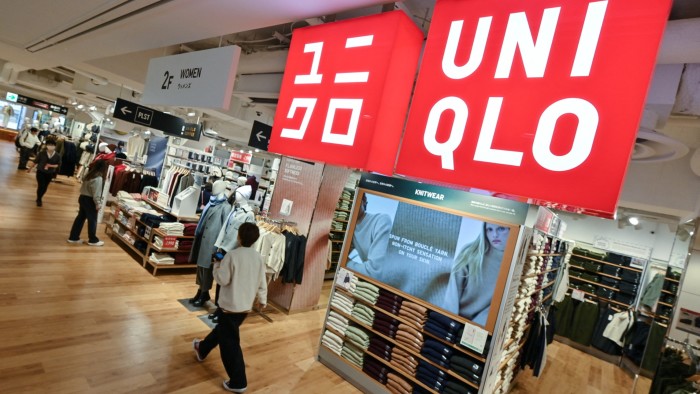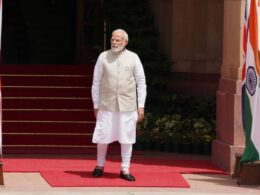Unlock the Editor’s Digest for free
Roula Khalaf, Editor of the FT, selects her favourite stories in this weekly newsletter.
The billionaire founder of Japanese clothing retailer Uniqlo said US President Donald Trump’s tariffs would do little to halt a shift of supply chains from China to south-east Asia and Africa — but dismissed the notion that garment manufacturing would return to the US.
Tadashi Yanai, president of Uniqlo’s owner Fast Retailing, said his company could fairly easily shift its sourcing between garment-producing nations depending on the configuration of tariffs because the big outsourcers that make its clothes have globalised their factory footprints.
He said the trend for clothing manufacturers to shift production from China to lower-cost regions would continue because “the economy, finance and information have no borders”.
However, he said the American levies were “unreasonable” and could not be sustained, and that “if the current tariff war continues then the big countries may be OK but for the developing countries it will be a catastrophe.”
And he insisted that garment manufacturing would not return to the US, given it is primarily a financial and information economy.
Yanai’s comments came as Fast Retailing forecast a 20 per cent drop in profit for its North American business in the second half of its financial year because of additional costs resulting from the tariffs, although it still expects a “considerable rise in revenue” in the region where it has rapidly expanded its presence to 97 stores.
Fast Retailing expects a 2-3 per cent tariff hit to group profits in the second half of the year, although its calculations were based on the hefty reciprocal tariffs announced by Trump on April 2, which have since been paused for 90 days, and no rise in price for its products.
However, it still upgraded its full-year underlying profit outlook to ¥545bn from ¥540bn, after a strong second quarter in which earnings rose 33 per cent to ¥146.7bn.
The company also said the impact of tariffs would be “limited” by the fact it had imported a significant amount of stock into the US in advance to see it through the next six months.
The US and Europe have become key growth areas for Asia’s largest clothing brand in the wake of the economic slowdown in China.
Fast Retailing sources its fleeces, chinos and other garments from 380 factories, of which China accounts for the largest share at 206, followed by Vietnam, Bangladesh and Cambodia.
Yanai signalled further diversification away from China for Fast Retailing’s supply chain, saying the “China plus one” model, in which companies diversify manufacturing out of Asia’s largest economy to just one other nation, was gradually being replaced by a new era in which they would rely on several manufacturing nations for lower cost goods.
Source link









